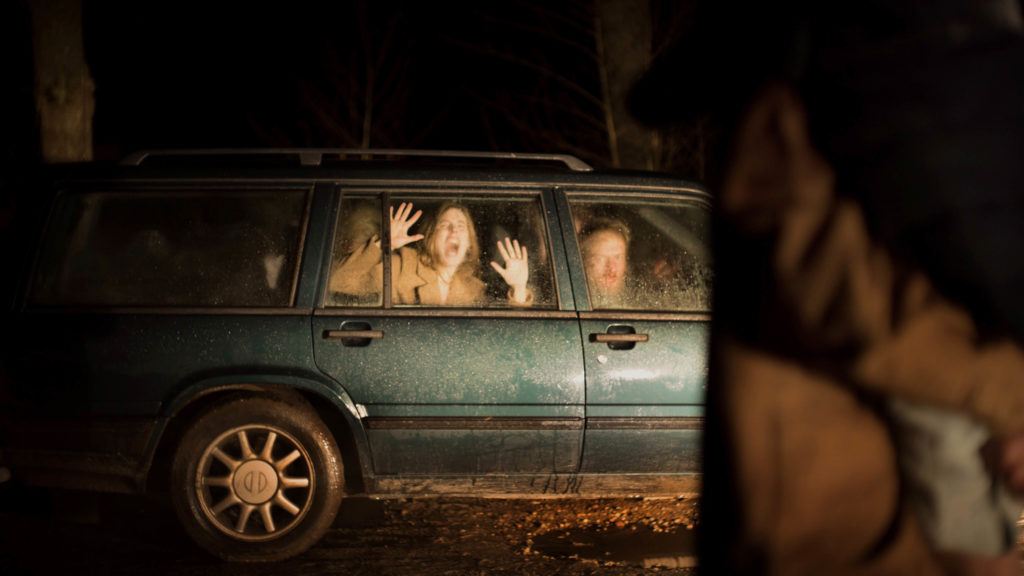Speak No Evil

Morten Burien and Sidsel Siem Koch appear in SPEAK NO EVIL by Christian Tafdrup, an official selection of the Midnight section at the 2022 Sundance Film Festival. Courtesy of Sundance Institute | photo by Erik Molberg.
Imagine a movie conceptually full of promise, yet completely inept on nearly every level of execution. SPEAK NO EVIL introduces us to a Danish couple, Bjørn (Morten Burian) and Louise (Sidsel Siam Koch), who meet Patrik (Fedja van Huêt) and Karin (Karina Smulders) while vacationing in Italy.
The first thing an observant person would notice is the name of the shop where they meet. L’Ombra Della Sera (“Shadow of the Evening”). It shares the name of an Etruscan statue, thought to represent the long, evening shadow of a boy. The parents of the boy, in this case, are deliberately vague about his muteness. It’s not for a lack of honesty, as we are drowned in gestures of politeness to a fault—a recurring theme in Danish culture; we see where this is going.
So, when the wife expresses doubts about their invitation to Holland to spend a week at the home of a family they’d conveniently met just the week prior, her husband argues that it would be rude to turn them down. It never occurs to either of them to simply make up a prior engagement or simply, politely decline.
And so we go down this checklist of Things You Should Not Do.
You should not lodge with people you’d only met on a whim.
You should not lodge in a geographical area where GPS and cell reception are sketchy.
You should not stay when the hosting father verbally abuses his son in front of people he’s just met.
You should not be dismissive of the abusive father when he ridicules your eating habits.
You should not hesitate to tell your wife about the thing you saw that terrified you and made you leave.
You should not get back in their car when they catch up to you on the road on which you were fleeing from them.
And so on and so forth. It is almost a comedy, the way writer/director Christian Tafdrup takes us deeper and deeper into the weeds of incredulity. What’s perhaps most aggravating in this cascade of bad decisions is the sheer volume of irrational setups without payoffs. Why, for example, does Patrick pass Bjørn and Louise only to stop in front of them, then let them pass, just so he can catch up with them later anyway? And then they get in the car!
Earlier, the Danish couple tells their friends they’re going on a trip. This is good. Someone should always be aware of your whereabouts, especially so this can be revisited later when they go missing. But nothing is made of it. Just like nothing’s made of the fact there’s a conversation early in the film about technological dependence and the difficulty of going off the grid. Never mind the alarm bells… The “G” in GPS stands for “Global”. Why do they get lost? And why does nobody ever think twice about the kid’s muteness after Patrick loses his temper? Congenital aglossia is pretty rare. But never mind.
The entire movie is like a warehouse of Chekhov’s Guns. SPEAK NO EVIL fails to observe the most basic tenets of horror and of drama in general: To introduce something is to create tension, to reveal its purpose is to release that tension and create a payoff. The payoff doesn’t have to be particularly happy. The payoff can be how exactly the murderer gets away with stoning bodies in plain sight. Here, many of Chekhov’s guns are laid on the table and never fired.